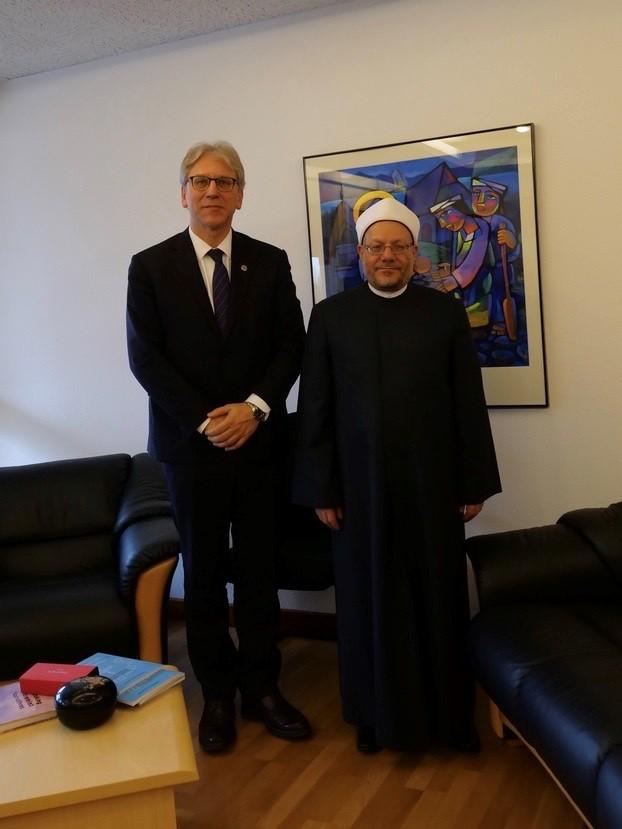World Council of Churches (WCC) general secretary Rev. Dr Olav Fykse Tveit received Egypt's Grand Mufti Shawki Ibrahim Abdel-Karim in the Ecumenical Centre, Geneva, Switzerland. In their meeting, the religious leaders engaged in in-depth dialogue to promote peaceful relations among diverse communities, religious freedom, values for equal citizenship and key aspects of peacebuilding and interreligious dialogue, paying special attention to combating religious extremism leading to violence in many parts of the world.
Abdel-Karim pointed out the common roots and experiences of both Muslims and Christians living together for centuries in Egypt, which he said should be the basis of a constructive engagement for promoting peaceful relations.
“We are a family, and our personal relations do not merely reflect in our faith identities in Egypt. We have been neighbours for centuries, interlocked in close proximity as religious communities,” said the Grand Mufti, who is also a professor in Islamic jurisprudence.
He went on to say that “alliances between Christians and Muslims are not only possible but already exist on the ground among ordinary people in their everyday lives. The values of honesty, trust and respect are shared among people of both Christian and Muslim faiths.”
Tveit endorsed the importance of a shared vision for peaceful relations, saying, “We reflect together with our Muslim partners on what it means to be a Christian or Muslim in the world today while faced with divisions which are perceived as tensions between us.” This is why cooperation with other faiths is an intrinsic part of our aspirations for Christian unity, he added.
The importance of proper religious education is essential, added Tveit. “Both of our religions are scriptural faiths in which a holy book, whether the Qur’an or the Bible, plays a very significant role,” he said. “There is potential for the misuse of holy texts by people who have not had the opportunity of studying the scriptures in their context.”
Religion should give people hope, Tveit said. “We are not only accountable to the texts as expressions of the Word of God,” he said. “We are also accountable for how we use them (or abuse them) in sharing them with the fellow human beings of today who need hope for tomorrow.”
